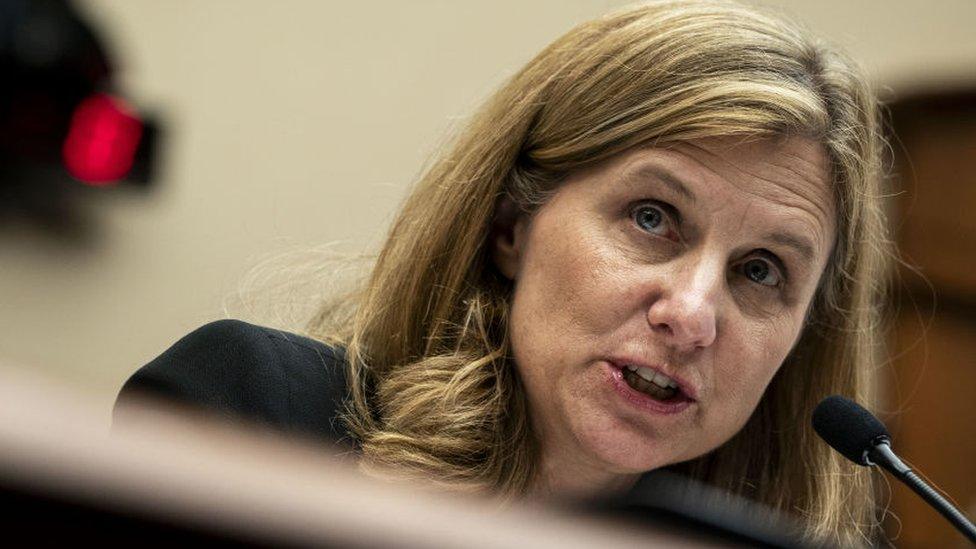Claudine Gay: New problems found in Harvard president's work
- Published
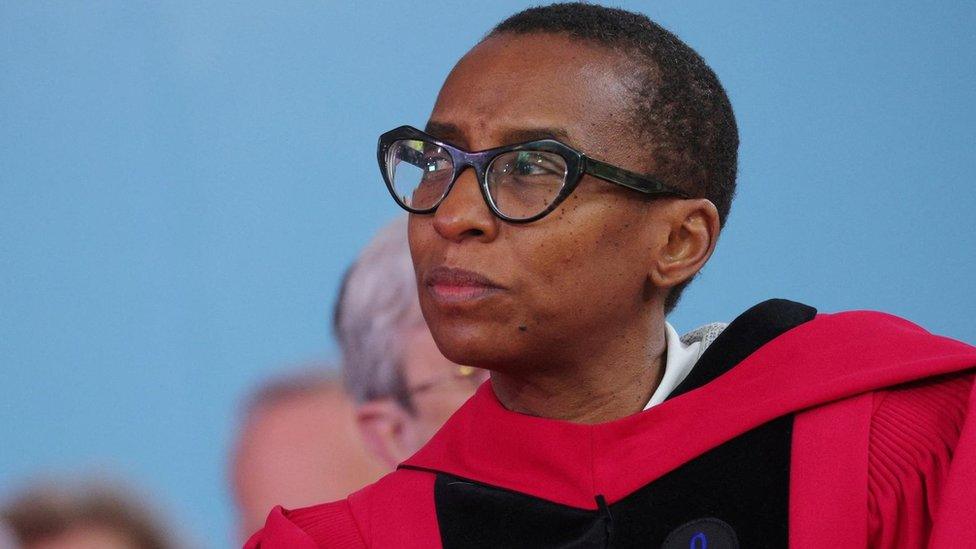
Lawmakers want Harvard to provide files from its internal plagiarism inquiry into Claudine Gay
Harvard's president will request corrections to her dissertation after three new instances of "inadequate citation" were found in her essays.
Claudine Gay has been facing mounting accusations of plagiarism.
On Wednesday, a congressional committee said it would expand its ongoing investigation into antisemitism at Harvard to include her academic papers.
Chairwoman Virginia Foxx said the inquiry would see if students and staff are held to the same academic standard.
The BBC contacted Harvard's governing body for comment.
Dr Gay has faced calls to resign for her testimony during a congressional hearing about antisemitism on campus.
And on Wednesday, the Republican-led Committee on Education and the Workforce said it would broaden its look at Harvard to cover Ms Gay's own works.
Ms Foxx, a Republican member of the House of Representatives, said in a letter to the leader of Harvard's board on Wednesday that the prestigious institution could be violating the public's trust.
"Our concern is that standards are not being applied consistently, resulting in different rules for different members of the academic community," she said.
The committee is demanding that Harvard submit any documents and communications related to the plagiarism inquiry into Dr Gay.
The lawmakers also want a list of any academic disciplinary actions taken against Harvard faculty or students since 2019. It asks that the board respond to the committee by 29 December.
Watch: Moment top US university heads evade question on genocide
Harvard is a private institution that receives hundreds of millions of dollars of public funding each year. It has $50bn (£40bn) in assets.
The three corrections to Dr Gay's 1997 PhD dissertation were announced as part of a review into her work conducted by the Harvard Corporation, the university's most senior governing body.
The review found three instances of "inadequate citation" in her dissertation.
Last week, the board said it had checked Dr Gay's academic history and found two published papers that needed additional citations.
But it added that she did not violate "standards for research misconduct".
Harvard's board has said it became aware of plagiarism allegations against Dr Gay in October, but has unearthed no violations of university policies.
Recent reports published by US outlets CNN, external and the Washington Free Beacon, external claim further instances of plagiarism. This includes her 1997 dissertation in which she allegedly copied a full paragraph nearly verbatim from a paper published one year earlier.
The Free Beacon, a conservative publication, said it has discovered at least 40 cases of plagiarism.
She and other university leaders were accused of insensitivity and hypocrisy when discussing efforts to stem antisemitism on their campuses amid the Israel-Gaza war.
During tense questioning, Dr Gay said calls for the killing of Jews were abhorrent. She added, however, that it would depend on the context whether such comments would constitute a violation of Harvard's code of conduct regarding bullying and harassment.
The university later announced it had chosen not to discipline Dr Gay for her testimony, and she also apologised in an interview with the school's student newspaper.
- Published9 May 2014
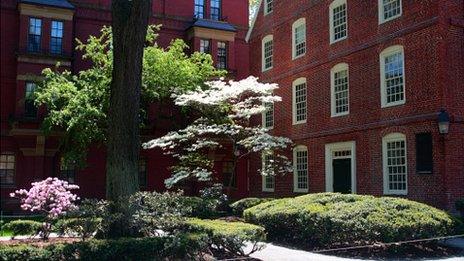
- Published8 December 2023
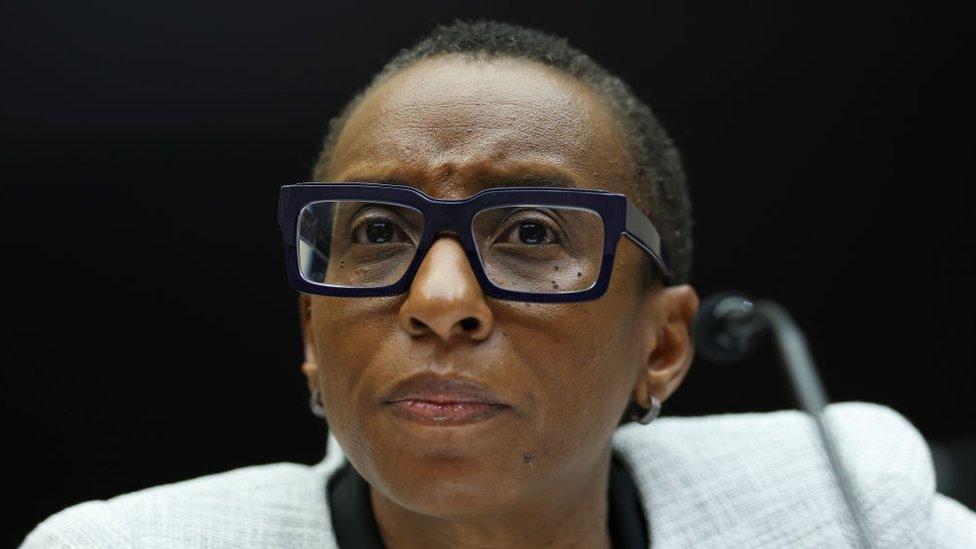
- Published11 December 2023
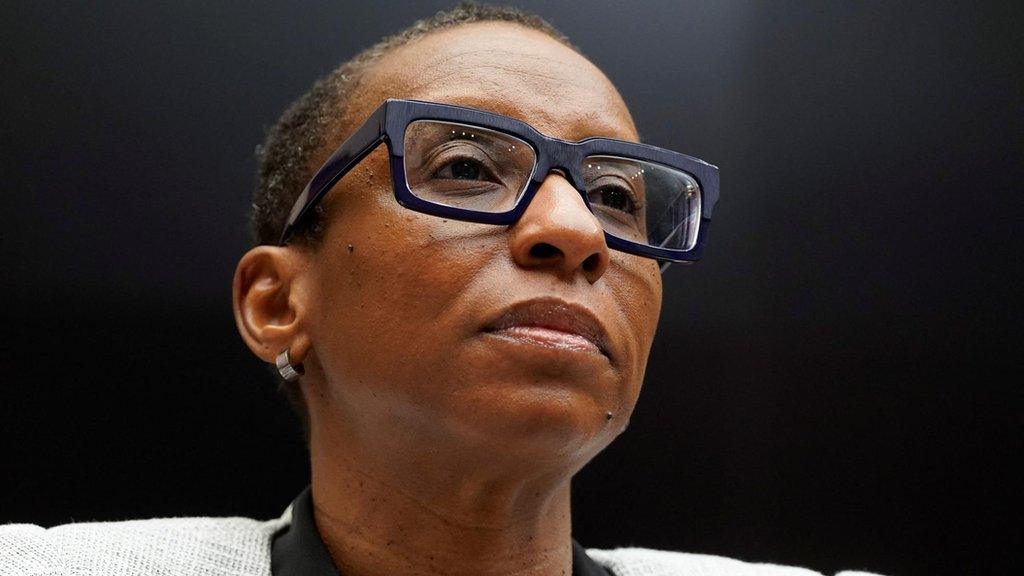
- Published9 December 2023
